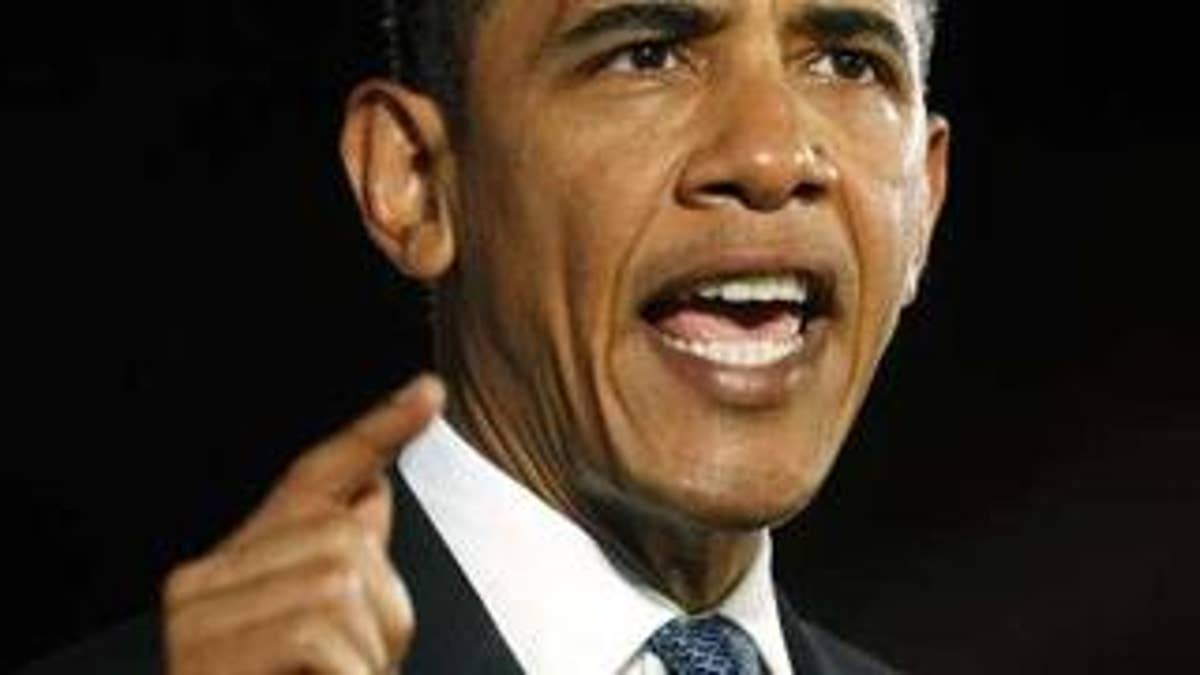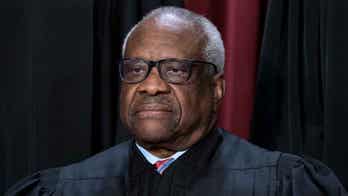
There's no such thing as too much Obama. At least, that's what the White House seems to think.
President Obama is everywhere and beyond this week, topping off his interviews on no fewer than five Sunday morning news shows with a Monday night appearance on "The Late Show" with David Letterman. He's on the world stage at the United Nations. He's on the local stage at a community college in upstate New York. He also found time for interviews with two limited-audience newspapers: the Toledo Blade and the Pittsburgh Post Gazette.
The only thing he's not doing, South Carolina Sen. Lindsey Graham joked Sunday, is the Food Network. But hey, it's only Monday.
As he trumpets the sales pitch for his health care plan, Obama is demonstrating the marketing acumen of Donald Trump, P. Diddy and Oprah combined. His message and image infiltrate everything -- he talks serious politics to a joint session of Congress, weighs in (unintentionally) on a controversial entertainer who acts like a "jackass," brings the world stage to the U.S. heartland with a world summit in Pittsburgh and doesn't withhold endorsements of Democratic primary candidates far and wide.
Josh Gottheimer, former speechwriter for President Clinton, said the demand to see, speak to and hear from Obama demonstrates that the president is not running "out of gas."
"There's a reason why some of the cable networks show seven episodes of 'Everybody Loves Raymond' every night. It's because it's popular and people watch it," he said. "The president is the only one who really understands his message the best."
So, in an effort to supply the demand, Obama has offered himself to a variety of forums just this week:
Sunday: Obama appeared on pre-taped interviews with ABC, CBS, NBC, CNN and Univision. The White House did not make Obama available for "FOX News Sunday."
Monday: Obama delivered remarks on "innovation" at Hudson Valley Community College in Troy, N.Y. He later planned to tape an appearance on "The Late Show With David Letterman" in New York City.
Tuesday: Obama meets with Israeli Prime Minister Benjamin Netanyahu and Palestinian President Mahmoud Abbas in New York. Then he hosts a summit on arms control and gives a speech on climate change.
Wednesday: Obama is to deliver an address to the U.N. General Assembly.
Thursday: Obama heads to Pittsburgh for the G-20 summit.
But the strategy of "O"-verexposure contains some inherent risks, his opponents say. The public can be turned off, tired of seeing Obama on every magazine cover and every news show, and even on their late-night comedy couch.
"The president is selling something that people, quite frankly, are not buying," Graham, a Republican, said on NBC's "Meet the Press."
Syndicated columnist Charles Krauthammer said any president needs to "ration his aura" to be effective.
"Obama had a tremendous aura coming in," he said on FOX News. "But when he's given 263 speeches in 238 days, it becomes rather flat."
Republican National Committee Chairman Michael Steele said the president is a broken record -- on the world's biggest gramophone.
"There was nothing new here. There was nothing that will move the needle, if you will, on this debate," Steele said of Obama's appearances on the five Sunday news shows.
The president "said a lot without really saying anything," Steele added during his own appearance on CBS's "Face the Nation."
"The American people will walk away from this weekend's series of interviews -- I think, tomorrow night, with Letterman or whatever -- and they'll say to themselves, 'So, what's changed?' And this is not, I think, very helpful to the president right now. He's got to get the American people behind him," Steele said.
Getting America behind him is just what is intended, say some analysts and strategists. Obama has made the assessment that more is better when it comes to exposure and that he's got the draw and persuasive talent to make a difference.
"They don't worry about overexposure," FOX News contributor and National Public Radio correspondent Mara Liasson said. "They believe strongly that the media environment is so fractured that he has to try to reach every single audience wherever he can, whenever he can."
White House Press Secretary Robert Gibbs echoed that point Monday, saying the president's appearance on Letterman gives him a chance to talk to an audience that doesn't always get news from traditional outlets.
Plus, he added, the president "has had a good rapport with David Letterman for quite some time. ... I think it will be fun."
Obama used his platform Sunday to hammer key points of his proposals and beat back criticism.
He rejected charges that a requirement for Americans to buy health insurance amounts to a tax increase. He repeated his view that a government-run insurance plan -- favored by the left, but despised by the right -- should be a "part of this," but should not be considered the "silver bullet" for health care problems.
Republican strategist Terry Holt, a consultant with America's Health Insurance Plans, said the president is offering a message that is often divorced from reality.
"The president is just fundamentally disconnected from what he is selling," Holt said. "His generalities about the plan do not match with the legislation that is being proposed in the Congress. ... The president is talking one game, but the American people are looking at legislation that is a totally different thing."




